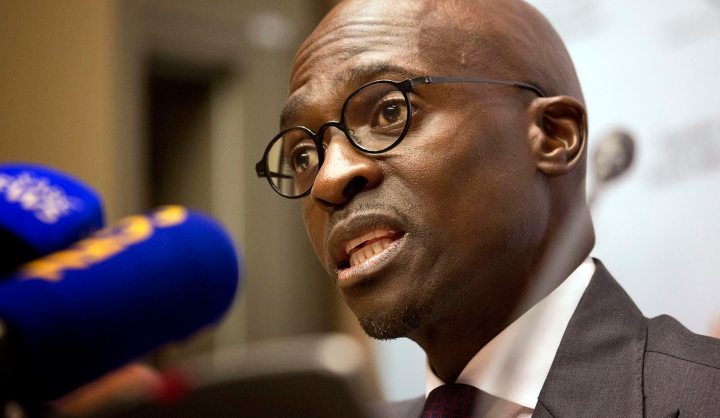South Africa
Budget 2018: Not enough money to go around, and especially not for nuclear

Amid the 2018/19 Budget talk of tough decisions, tax increases and government spending cuts to put the rands and cents to government priorities for the year, there are some interesting gaps. By MARIANNE MERTEN.
There is no allocation for nuclear energy in the budget documentation. And the reason? “We can’t afford it,” said Finance Minister Malusi Gigaba during a briefing ahead of delivering his maiden Budget speech in the National Assembly on Wednesday. It was a repetition of what President Cyril Ramaphosa told the World Economic Forum in Davos, Switzerland, at the end of January when the then still deputy president led Team South Africa.
Gigaba’s comments, backed up by the lack of financial allocations, come just a day after Energy Minister David Mahlobo told the parliamentary energy committee that the nuclear build programme would proceed. It’s a déjà vu of the clash between the two ministers after October’s Medium-Term Budget Policy Statement (MTBPS) – and an indication of differences, and even divisions, within government. Mahlobo is widely regarded as a supporter of former president Jacob Zuma, whose administration pushed for a nuclear build programme.
And while the Budget emphasises government spending efficiency, and pledges finances to fight corruption and State Capture, the rands and cents are not immediately apparent.
So there is a pledge to support the soon-to-get-going State Capture commission of inquiry, qualified with statements that a final allocation could only be done once a final bill was submitted. For now, government’s R5-billion contingency reserves are set to fund the commission.
Those contingency reserves would also be relied upon to strengthen the Office of the Auditor-General, a constitutional Chapter 9 institution to support democracy.
Perhaps most glaringly, there are no definite allocations for the financially dithering State-owned Entities (SOEs), like SAA which still requires a bailout following the R10-billion made available last year, or Eskom, whose financial precariousness led to a ratings downgrade last month.
Gigaba explained “there are on-going discussions” with regards to possible allocations to SOEs in financial turmoil, but these had not yet been finalised. These discussions were also related to a review of the SOE policy framework that is under way, and once the President had taken full control of the SOE co-ordinating council. Ramaphosa in his State of the Nation Address (SONA) last week announced a clean up of SOE boards with members of the necessary integrity, experience and skills, while also ensuring boards stay out of procurement. Eskom’s board was changed in January, and the next one is set to be that of weapons manufacturer Denel.
“Any spending on SOEs will be done in a budget-neutral way,” added the Finance Minister.
But of course, the budget documentation outlines the tens of billions of rands in government guarantees to SOEs: R350-billion to Eskom; the extension of a R1.9-billion guarantee to Denel until September 2018; a R1.2-billion guarantee to the Passenger Rail Agency of South Africa (Prasa); and further support to the cash-strapped SAA.
Right now government was looking at various options, Finance Director-General Dondo Mogajane told journalists in the pre-Budget speech briefing. And the option of selling government’s approximate 39% share in Telkom, which sparked controversy when the Cabinet discussions on this emerged, remained on the table as one option.
Government was now also looking as selling some of the 195,000 properties to realise an expected R40-billion.” Our options are open. There are intensive discussions within government to identify further (options),” the Director-General said.
And the word is also still out on the rands and cents allocations for the public wage bill to pay some 1.2-million civil servants. Anything more than at best inflation-related increases is unaffordable. The Budget Review indicates that despite the previous calls to fiscal discipline, some government departments are at risk of overspending on employees’ compensation. Negotiations have yet to be finalised. DM
Photo: Finance Minister, Malusi Gigaba briefs the media ahead of delivering the Budget on 21 February 2018. Photo: Leila Dougan![]()

















 Become an Insider
Become an Insider